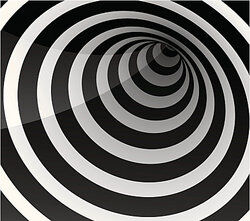Paradox Definition
părə-dŏks
paradoxes
noun
A statement contrary to common belief.
Webster's New World
A statement that seems contradictory, unbelievable, or absurd but that may be true in fact (Ex.: “Water, water, everywhere, nor any drop to drink”)
Webster's New World
A person, situation, act, etc. that seems to have contradictory or inconsistent qualities.
Webster's New World
A statement that is self-contradictory and, hence, false.
Webster's New World
A counterintuitive conclusion or outcome. usage syn.
It is an interesting paradox that drinking a lot of water can often make you feel thirsty.
Wiktionary
Other Word Forms of Paradox
Noun
Singular:
paradoxPlural:
paradoxesOrigin of Paradox
-
Latin paradoxum from Greek paradoxon from neuter sing. of paradoxos conflicting with expectation para- beyond para–1 doxa opinion (from dokein to think dek- in Indo-European roots)
From American Heritage Dictionary of the English Language, 5th Edition
-
From Middle French paradoxe <Latin paradoxum, from Ancient Greek παράδοξος (paradoxos, “unexpected, strange").
From Wiktionary
Paradox Is Also Mentioned In
Find Similar Words
Find similar words to paradox using the buttons below.





